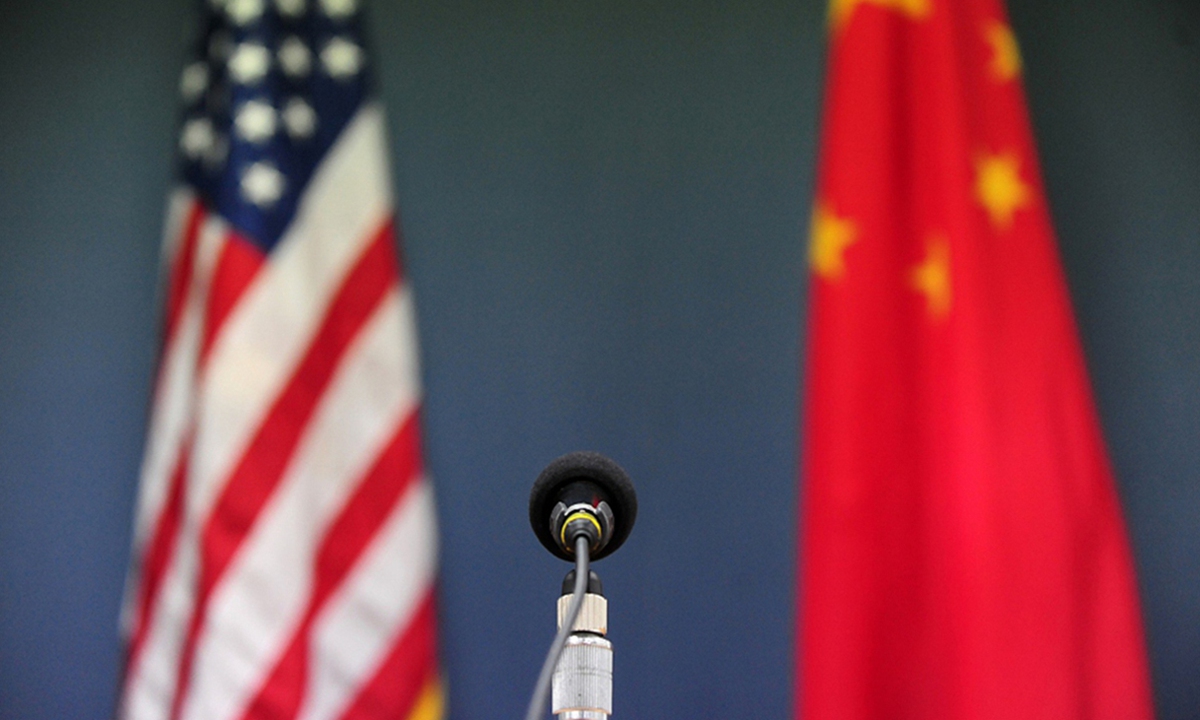
China US Photo: VCG
Why was China's top envoy to the US unusually invited to have a meeting with the top US defense official for Indo-Pacific? Experts said the talks reflected the US' urgent need to thaw military communication with China at a time when interactions have been resumed in diplomatic, financial and climate sectors, but said it is the US' actions that matter in restoring bilateral military exchanges.
According to the Chinese Embassy in the US, Chinese Ambassador to the US Xie Feng met with the US Assistant Secretary of Defense Ely Ratner upon invitation on Wednesday. Xie said a sound and stable China-US relation is in the common interest of the two countries, urging the US to work with China in the same direction to gradually bring the state-to-state and mil-to-mil relations back to the right track.
"The US should remove obstacles and manage differences with concrete actions, prudently handle important and sensitive issues such as the Taiwan question in accordance with the principles enshrined in the three China-US joint communiques," said Xie.
Pentagon spokesperson Martin Meiners said the two officials discussed defense relations and a range of international and regional security issues, and Ratner underscored the Department's commitment to maintaining open lines of military-to-military communication between the two countries.
Some media described the discussions, which the Pentagon said lasted for about 90 minutes, very rare and unusual, and quoted experts saying that "China is at least responding to US concerns, but the actual progress still requires time and negotiations."
Xie's meeting with the US defense official was clearly initiated by the US who intends to thaw communication channels with China at the military level by riding the wave of recent favorable situation where several senior US officials have or will visit China to promote high-level dialogues, Li Haidong, a professor at the China Foreign Affairs University, told the Global Times.
Following the visits of Secretary of State Antony Blinken in June and Treasury Secretary Janet Yellen days ago, the Special Presidential Envoy for Climate John Kerry will visit China from July 16 to 19.
"The US military expressed desire to facilitate direct communication between high-level officials in such broader context, but they kept creating the obstacles in the bilateral military talks, for example its provocative actions on Taiwan question. And this made them have to seek diplomatic channels to address problems in the defense sector," Li pointed out.
Although the US has shown a sense of urgency in communicating with the People's Liberation Army (PLA), the military exchanges between the two countries require a high level strategic mutual trust, which is currently insufficient between China and US, an expert on the military issue, who spoke on the condition of anonymity and shared similar views with Li, told the Global Times.
The expert listed the US' recent approval of selling arms worthy of $440 million to the Taiwan region in late June, as well as the hyping of US and its allies on PLA's so-called unprofessional activities in the South China Sea and the Taiwan Straits in the recent two months.
Experts said the US' contradictory and puzzling behavior indicated that it wants to pressure China from the position of strength to achieve its unrealistic goals. They said that the US should rectify its previous misguided actions and promote bilateral exchanges on the basis of equality and mutual respect if they truly want to thaw military communication.




